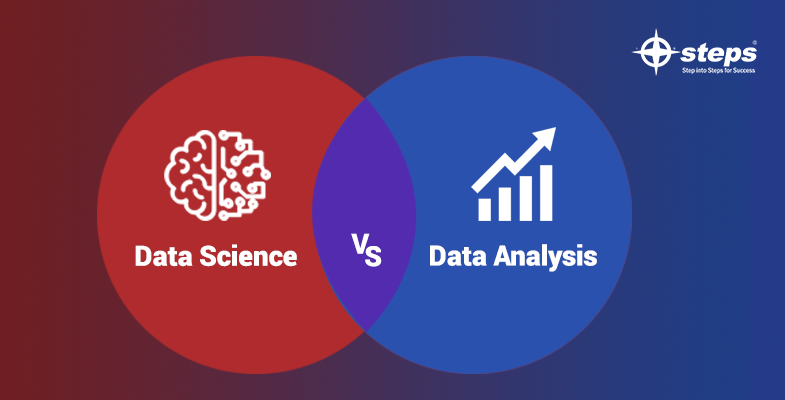Data Science Vs Data Analysis
The buzzwords of the year are data analytics and data science. Big data and data science professions have long been a solid pick for those searching for a long-term career path. As AI and Machine Learning grow more incorporated into our daily lives and economy, this tendency is expected to continue.
Data is the new oil for organizations today, allowing them to acquire essential insights and improve corporate performance in order to stay competitive.
A data analyst or a data scientist is in charge of everything. As firms around the world seek to make the most of data, these are the two most popular career titles in this field. Data Science and Data Analytics are a jumble of concepts that intertwine and overlap yet are fundamentally different.
Data analysis entails responding to queries posed in order to make better business decisions. It uncovers actionable data by utilizing existing data. Data analytics is a branch of data science that focuses on specific domains with specific objectives.
Data science, on the other hand, focuses on uncovering new questions that you may not have recognized you wanted answered in order to drive innovation.
Unlike data analytics, which focuses on testing a hypothesis, data science aims to make connections and frame questions in order to provide answers in the future. Data analytics is a modest room in the house of data science, which houses all the methods and tools. Data analytics differs from data science in that it is more focused and specific.
Data analytics is primarily concerned with putting historical data into perspective, whereas data science is more concerned with machine learning and predictive modelling.
Data science is a multidisciplinary approach to solving analytically complicated business problems that includes algorithm creation, data inference, and predictive modelling. Data analytics, on the other hand, encompasses a number of distinct fields of statistics and analysis.
Knowledge of Intermediate Statistics and exceptional problem-solving skills are required for data analytics.
- Excel and SQL database dexterity for slicing and dicing data
- Working with BI technologies like as Power BI for reporting is a plus.
- Knowledge of statistical software such as Python, R, or SAS
It is not necessary to have an engineering background to become a data analyst, although having good abilities in statistics, databases, modelling, and predictive analytics is a plus.
The following are some of the responsibilities of a data analyst:
- Analyzing exploratory data
- Cleaning up your data
- Using various statistical methods, discover new patterns.
- Create visualizations and key performance indicators (KPIs).
Math, advanced statistics, predictive modelling, machine learning, and programming are all part of data science.
- Knowledge of big data tools such as Hadoop and Spark
- SQL and NoSQL databases such as MySQL and MongoDB expertise
- Data visualisation tools like QlikView, D3.js, and Tableau.
- Programming languages such as Python, R, and Scala.
The job of a data scientist entails —
- Data processing, cleansing, and integrity verification.
- Analyze exploratory data
- Using machine learning techniques and algorithms to extract business insights.
- Identifying new data trends in order to create future forecasts.
Data Science training in Kerala helps to get started with various Data Science Concepts and provide a great way to practice what we learned. But nothing is complete without practice and guidance. Choose the right Data Science training in Kochi to kick start your career as Data Scientist.

